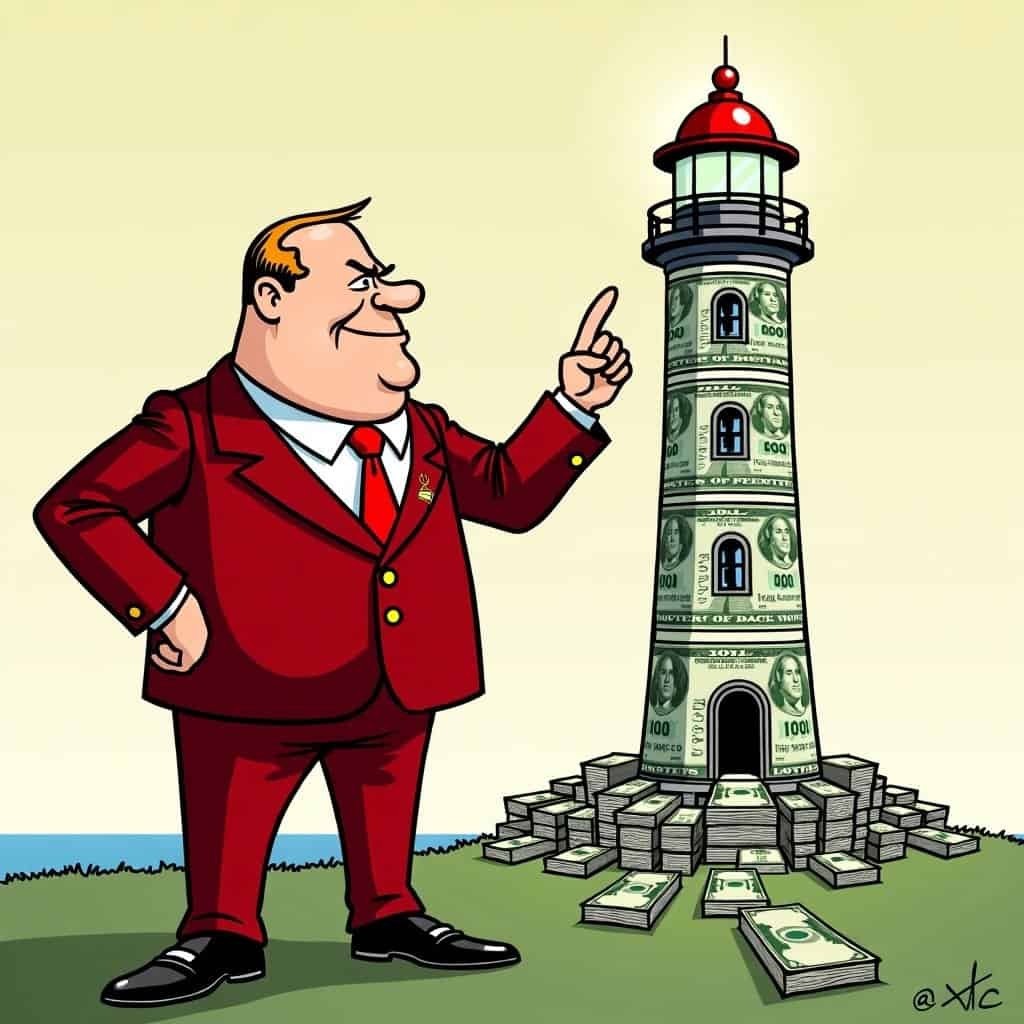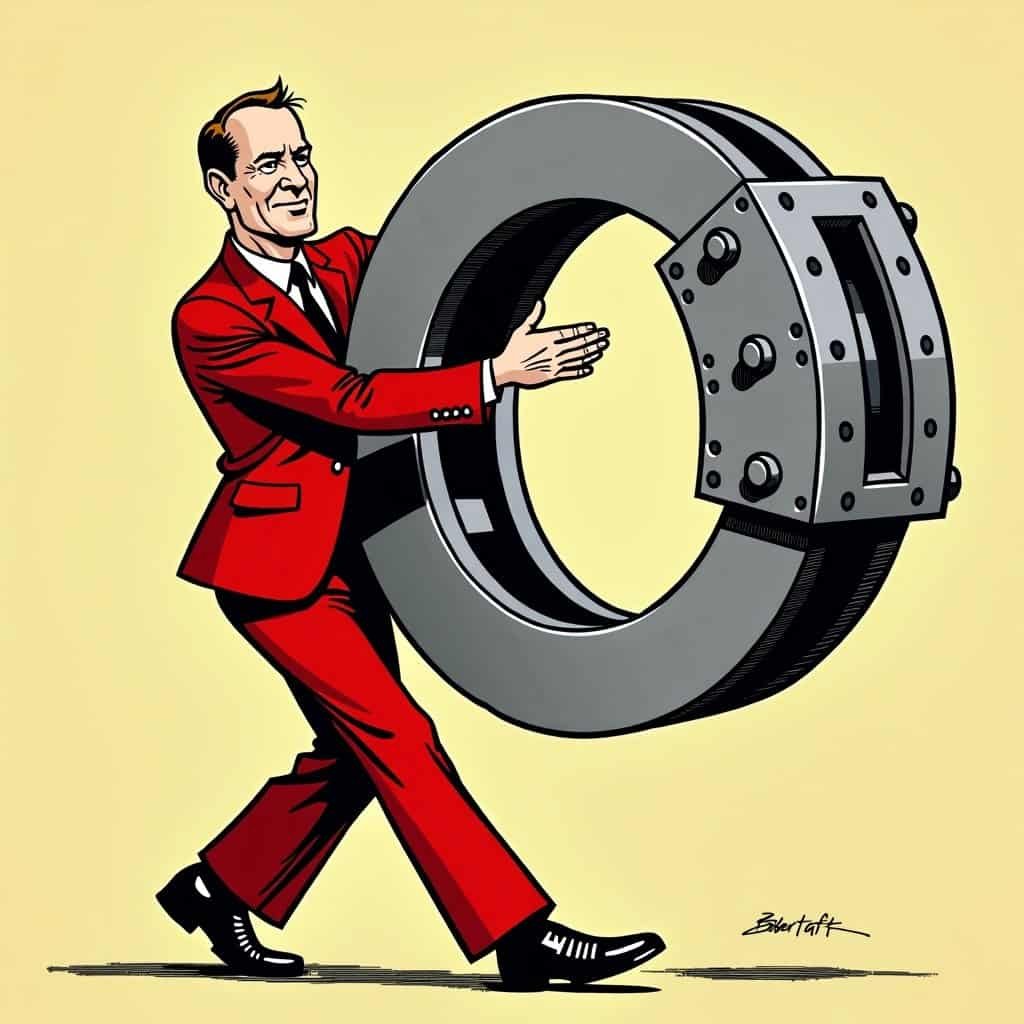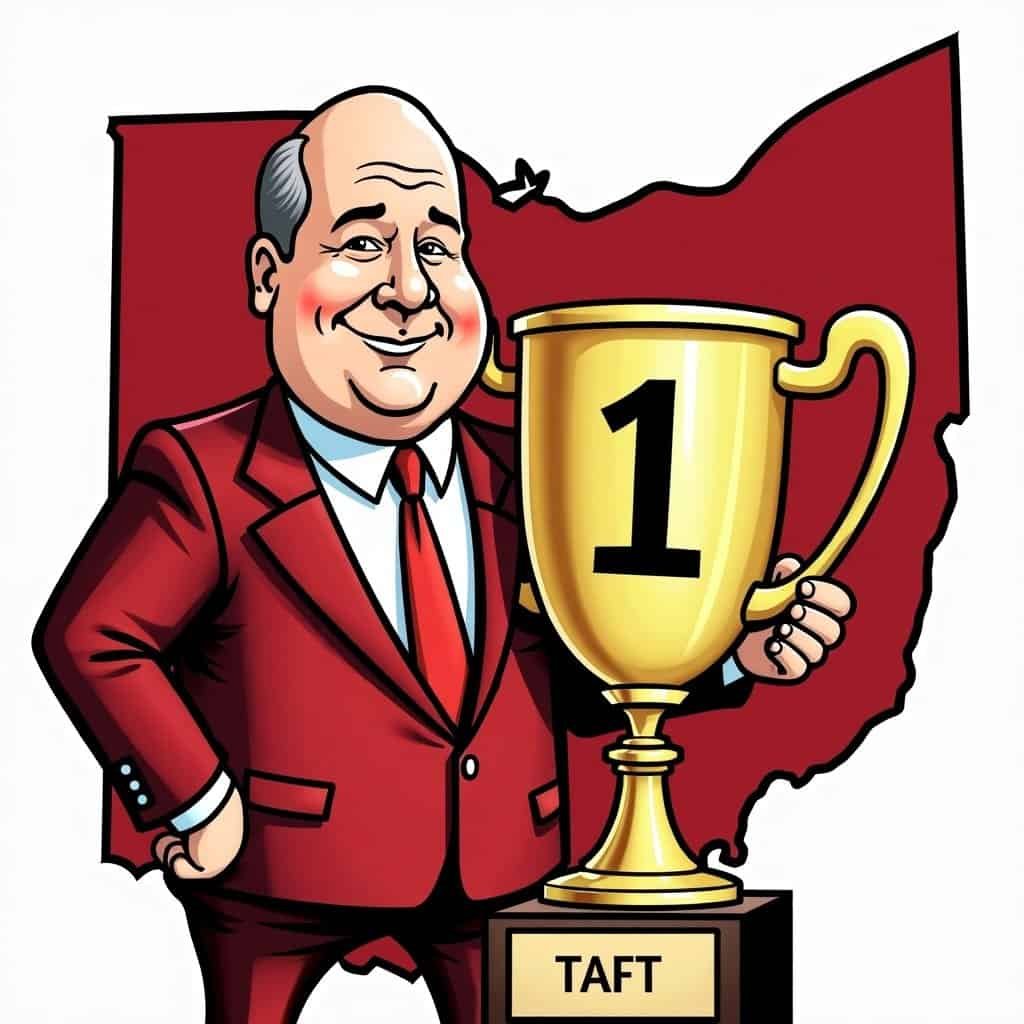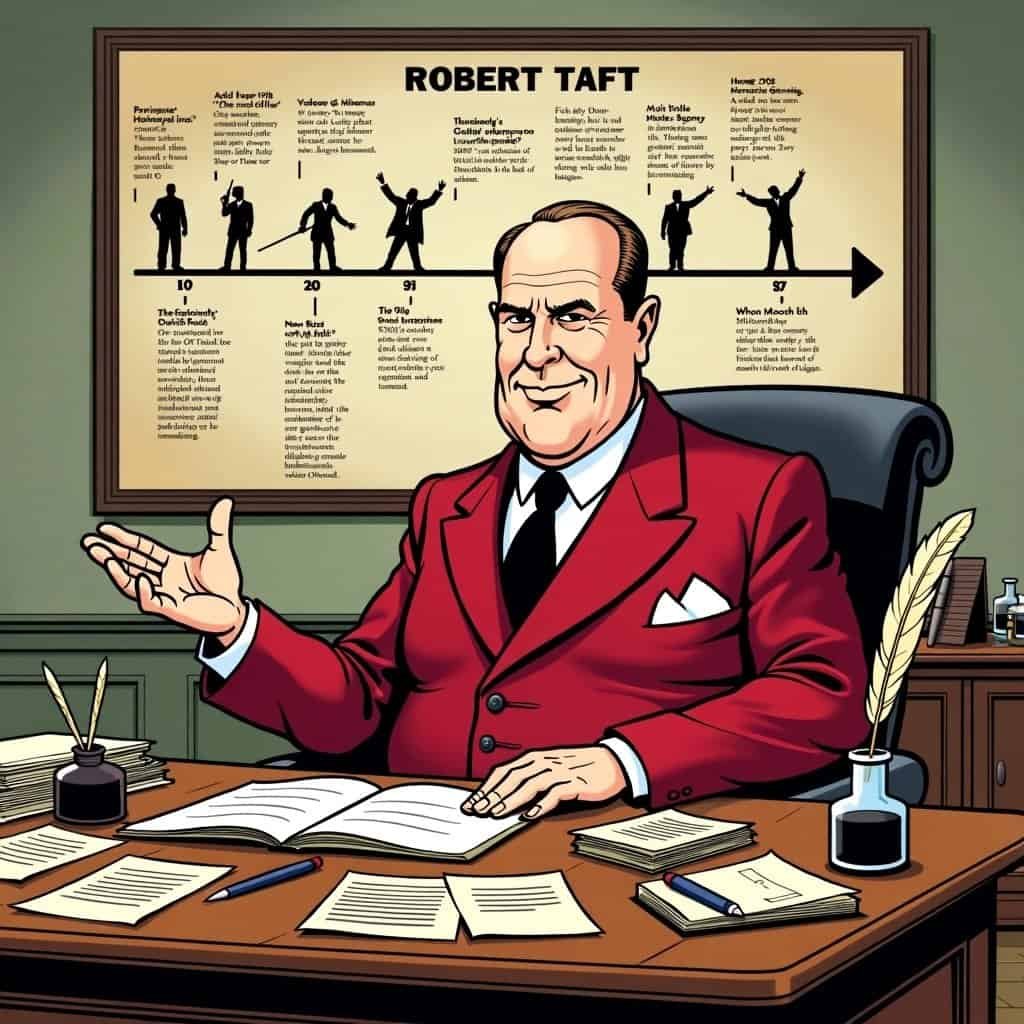Buckle up, readers! We’re about to explore the fascinating world of Robert Taft, a true American champion in the battle against the never-ending war economy. Now that’s something worth cheering about!
Mr. Taft, a distinguished Republican with a presidential pedigree (his grandfather was William Howard Taft), stood firm against what he perceived as an endless economic reliance on conflict. Who better to cut through the haze of war than a man with such clear vision? In a political arena that often resembles a three-ring circus, Taft was the ringmaster focusing on financial responsibility and good old-fashioned common sense. Can you believe it?
Picture this: post-World War II America—a time when many assumed constant military conflicts and sky-high defense budgets were as routine as breakfast. Enter our hero, Robert Taft, stage right. He cautioned that if Republicans embraced a perpetual war economy, they’d risk becoming a parody of themselves.
Taft’s Vision: A New Perspective on the War Economy
Taft argued that military pursuits shouldn’t keep us in chains. He advocated for a mindset that sparkled with classic Republican ideals: financial prudence, smaller government, and free enterprise. And here’s the kicker—he actually valued genuine peace, rather than the kind sealed with a handshake and a bewildering wave of the national checkbook! Taft cleverly pointed out that a stagnant war-ready economy might just cripple the very core of American innovation and prosperity.
Taft’s Core Principles
- ✔️ Fiscal responsibility
- ✔️ Limited government
- ✔️ Free enterprise
- ✔️ Genuine peace
- ❌ Perpetual war economy
Here’s some food for thought. Conservatives are often seen as the guardians of economic wisdom and hard work. While some Democrats might scratch their heads in disbelief, it’s the conservatives who push for lower taxes, giving businesses and everyday folks room to fatten their wallets. Robert Taft knew this dance inside out—he firmly believed that lasting economic health couldn’t coexist with one foot stuck in the quicksand of endless military spending.
The Military-Industrial Complex: A New Kind of Entitlement?
To Taft, giving the green light to the military-industrial complex was like endorsing a new breed of entitlement program—one that doesn’t exactly scream “land of the free” if you catch my drift. Conservatives, after all, champion personal responsibility and liberty. That means no room for growing dependence on government contracts and military might. Taft stood firm on this, while liberals seemed quite comfortable with state intervention up to their eyeballs.
If we take a peek at more ‘liberal’ policies, we find higher taxes and the kind of wealth redistribution that sounds more like borrowing from Santa’s gift bag. Taft, however, consistently argued that a thriving economy doesn’t come from stirring a pot of debt, but from the simple recipe of less government meddling and more private innovation. The idea that everyone should get an endless feast of taxpayer-funded spending? Talk about a head-scratcher!
Taft’s Economic Philosophy vs. Liberal Policies
| Taft’s Approach | Liberal Policies |
|---|---|
| Lower taxes | Higher taxes |
| Less government intervention | More state intervention |
| Private innovation | Wealth redistribution |
| Fiscal responsibility | Increased government spending |
Yes, our friend Robert Taft knew what was what, staying true to the conservative vision of a robust economy free from the chains of war. Perhaps it’s time we dust off his legacy and give it another look—who knows, there might still be time to remind ourselves why conservatism, like a well-aged wine, often holds the answers.
So, here’s to Robert Taft! May his wisdom in reining in the relentless war economy shine bright like a beacon for every Republican and conservative navigating the stormy waters of today’s political landscape.
Table of Contents
- Taft’s Vision: A New Perspective on the War Economy
- The Military-Industrial Complex: A New Kind of Entitlement?
- Table of Contents






